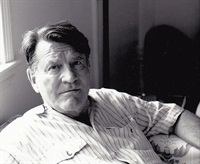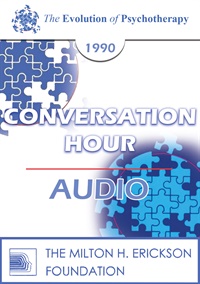EP90 Conversation Hour 02 - Jay Haley, MA
- Average Rating:
- Not yet rated
- Topic Areas:
- Conversation Hours | Psychotherapy | Case Discussions | Ericksonian Psychotherapy | Managed Care
- Categories:
- Evolution of Psychotherapy | Evolution of Psychotherapy 1990 | Pioneers in Couples and Family Therapy
- Faculty:
- Jay Haley, MA
- Duration:
- 1 Hour 01 Minutes
- Format:
- Audio Only
- Original Program Date:
- Dec 12, 1990
- License:
- Never Expires.
Description
Description: This session deals with the impact of managed care on therapy, the evolution of family therapy, and the need for adaptability in changing institutional and social contexts. Haley covers the influence of key theorists, the importance of structured planning, and the ethical balance of power and family involvement. Additional topics include single-session therapy and treating severely abused children.
Educational Objectives:
- To learn philosophies of various practitioners and theorists.
*Sessions may be edited for content and to preserve confidentiality*
Credits
Handouts
| Timestamped Transcript (927.4 KB) | 22 Pages | Available after Purchase |
| Ericksonian Learning Snapshot (244.6 KB) | 2 Pages | Available after Purchase |
Faculty

Jay Haley, MA Related Seminars and Products
Jay Haley (M.A., 1953, Stanford University) was Director of Family Therapy Institute of Washington, D.C. He was one of the leading exponents of the strategic/interpersonal approach to family therapy. Haley served as Director of the Family Experiment Project at the Mental Research Institute and as Director of Family Therapy Research at the Philadelphia Child Guidance Clinic. He has authoered seven books, co-authored two and edited five. Additionally, he has more than 40 contributions to professional journals and books. Haley is the former editor of Family Process, and the first recipient of the Lifetime Achievement Award of The Milton H. Erickson Foundation.


